
Oğuzhan Parasayan
Chercheur post-doctoral, Institut Pasteur
Oğuzhan Parasayan est Bachelor of Science (Major: Biologie moléculaire et Génétique; Minor: Archéologie et Histoire de l’art) de l’université de Koç, Istanbul, Turquie. Il a obtenu son diplôme de master du Magistère Européen de Génétique à l’Université Paris-Cité, Paris, France. Il a effectué sa recherche doctorale dans l’équipe « Epigénome & Paléogénome » à l’Université Paris-Cité, CNRS, Institut Jacques Monod à Paris, France et a obtenu son doctorat en 2022. Actuellement, il est chercheur post-doctoral à l’institut Pasteur à Paris, France, dans l’unité de « Génétique évolutive humaine”.
Less ![]()
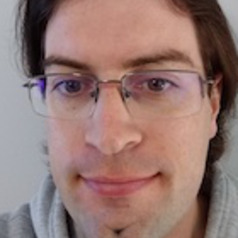
Oisin Creaner
Assistant Professor of Physical Sciences, Dublin City University
Dr Creaner is an interdisciplinary scientist who focuses on the application of high-performance computing to astrophysical data analytics challenges. His research has focused on observational astronomy across the spectrum from radio to visible to high-energy particle astronomy.
At DCU, is working on optimised strategies for the observation of exoplanets, for observers from citizen science projects such as Exoplanet Watch to ground-based high-performance observatories to satellites.
Less ![]()
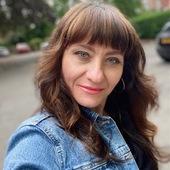
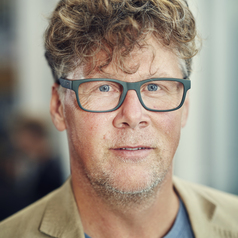
Ola Hall
Head of the Department of Human Geography, Lund University
I am a senior lecturer, reader and department head. My research bridges the gap between technical and social sciences, with time spent at institutions like MIT and the Royal Institute of Technology. My work primarily focuses on using satellite data, such as nighttime lights, to analyze economic development in areas with limited statistical data. This approach is particularly impactful in regions with underdeveloped public statistics or restrictive regimes.
I am is also the co-author of "Models for Non-Modelers," a guide for social scientists and researchers in understanding and applying data and statistical models. This work simplifies complex concepts in AI, epidemiology, and climate science, making them accessible to those without extensive mathematical backgrounds.
Recently, I have focused on the use of AI and satellite imagery in poverty analysis. Research in this field involves statistical analysis of welfare and poverty predictions, emphasizing the synergy of machine learning and deep learning in enhancing predictive accuracy. Recently, I combine high-resolution satellite imagery with expert analysis to estimate welfare levels, using the 2015 Tanzania DHS dataset for validation. This innovative approach highlights the potential of integrating human expertise with AI in socioeconomic research.
My mark is to merge technical and social science disciplines, making significant strides in GIS applications for socioeconomic studies and advancing the use of AI and satellite imagery in understanding complex global issues.
Less ![]()
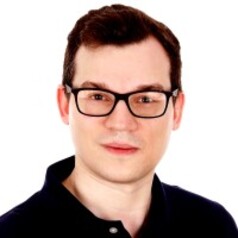
Olaf Lipinski
PhD Student in Artificial Intelligence, University of Southampton
I am a PhD student at the university of Southampton, studying artificial intelligence. My main focus is on emergent communication, or how AI agents can develop their own langauge.
Less ![]()

Olajumoke Morenikeji
Professor Department of Zoology, University of Ibadan
Olajumoke Abimbola Morenikeji completed her BSc in zoology at the University of Ibadan in 1990 and went on to obtain an MSc and a PhD in zoology (parasitology) in 1991 and 1998 respectively from the University of Ibadan.
Following her doctoral studies, she was awarded a MIM/TDR postdoctoral fellowship for training at the Division of Parasitology, National Institute of Medical Research in London, as well as a TWAS-DBT postdoctoral fellowship for training at the National Institute of Malaria Research in Delhi, India. She has a Certificate in International Health Research Ethics from the Harvard School of Public Health, United States.
She is an accomplished academic with a wealth of experience and expertise. Her impressive body of work includes over 100 published papers in local and international journals and four books. She has obtained support, sponsorships, scholarships, fellowships, and grants from a diverse range of institutions and organisations.
She is passionate about the environment and biodiversity conservation. She is the founder and chair of the Pangolin Conservation Guild Nigeria. This is an organisation that educates and creates awareness on pangolin conservation, conducts scientific research, collaborates with relevant organisations, advises policymakers, and facilitates pangolin rescue, rehabilitation and release into protected forest areas. She also chairs the West Africa, IUCN SSC Pangolin Specialist Group.
Less ![]()

Olajumoke Olateju
Graduate Research Assistant, University of Houston
I am a doctoral candidate specializing in Pharmaceutical Health Outcomes and Policy. My research uses data-driven approaches to optimize health interventions, primarily within the field of oncology. I have expertise in pharmacoeconomics and pharmacoepidemiology study designs and poses skills in large electronic database analyses, statistical methods, scientific writing, and grantsmanship. My interests encompass evaluating clinical, economic, and humanistic outcomes of novel therapeutic interventions and addressing health disparities. Currently, my research focuses on assessing the safety and effectiveness of cutting-edge immune-oncologic agents, particularly among diverse and vulnerable populations. My drive stems from a personal experience of the transformative impact of medicine and health policies, fueling my mission to bridge the gap between research and meaningful improvements in patient-centered care.
Less ![]()
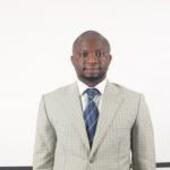
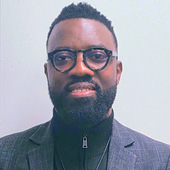
Olaniyi Fawole
Full Professor, SARChI Research Chair and Director of Postharvest and Agroprocessing Research Centre, University of Johannesburg
Less ![]()

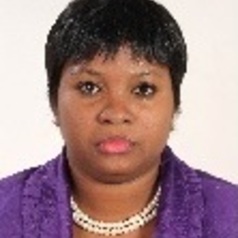
Olasunmbo Olusanya
Senior Lecturer, University of Lagos
Dr. Olusanya is an Employment Relations and Human Resource Management specialist with focus on Informal Economy, Entrepreneurship, Labour Economics, and Development Studies. She has her undergraduate degree in Business Administration from Ogun State University in 2004; Master of Science in Industrial Relations and Personnel Management in 2008 from the University of Lagos and a Ph.D. in Industrial Relations and Personnel Management from the University of Lagos in 2016. Olusanya has over ten years research experience and conducted research on a wide range of subjects in the areas of focus. She has six years teaching experience and is mentor to many students. She is a member of the Nigerian Industrial Relations Association (2006), The Academy of Management Science Nigeria (2013), Nigerian Institute of Management (2017), The Lagos Studies Association (2017) and the African Studies Association (2017). She has over eleven publications in local and international journals and won the Lagos Studies Association Fellowship in 2018.
Less ![]()
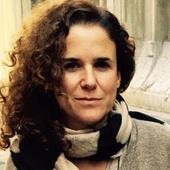
Olatz González Abrisketa
Profesora de Antropología, Universidad del País Vasco / Euskal Herriko Unibertsitatea
Less ![]()
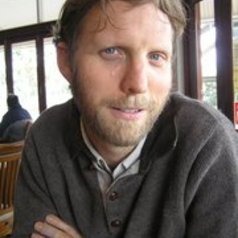
Olav Muurlink
Senior Lecturer, organisational behaviour, management, CQUniversity Australia
Olav Muurlink is a social and health psychologist, specialising in work and wellbeing, as well as attitude change. He is a senior lecturer in organisational behaviour at Central Queensland University, with a background in media and manufacturing SMEs. He is also chair of the international education charity, Co-operation in Development, which builds and operates free schools for disadvantaged children the delta of Bangladesh.
Less ![]()
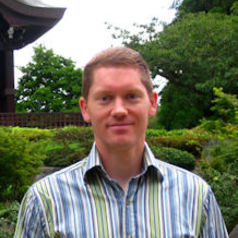
Oleg Benesch
Lecturer in East Asian History, University of York
BA (Alaska Fairbanks), MA (Reitaku), PhD (British Columbia)
Oleg Benesch is Lecturer in East Asian History, specializing in the history of early modern and modern Japan and China. Before arriving at the University of York, Oleg was Past & Present Fellow at the Institute of Historical Research at the University of London. He has spent almost six years living and researching in Japan, including two years at Hitotsubashi University in Tokyo.
Oleg’s publications and teaching interests cover a variety of fields, including Japanese intellectual, religious, and social history, Chinese intellectual history, as well as the transnational history of modern East Asia. He has presented his research findings at academic conferences and invited lectures throughout East Asia, Europe, North America, and Australia. Oleg’s recent monograph, Inventing the Way of the Samurai: Nationalism, Internationalism, and Bushido in Modern Japan, was published by Oxford University Press in 2014. He is a co-author of the 2015 book, Civilizing Emotions: Concepts in Nineteenth-Century Asia and Europe, also published by Oxford University Press.
Less ![]()
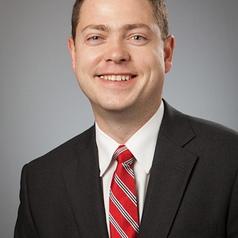
Oleg Petrenko
Associate Professor of Strategy and Entrepreneurship, University of Arkansas
Less ![]()
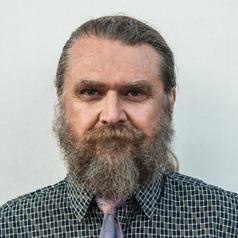
Oleg Shipin
Adjunct faculty, environmental engineering management, Asian Institute of Technology
Environmental engineering management, Department of Energy, Environment and Climate Change
Less ![]()
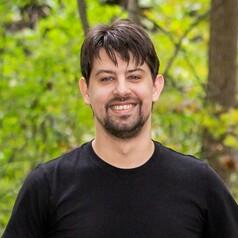
Oleksa Drachewych
Assistant Professor in History, Western University
Professor Drachewych specializes in the history of Soviet and Modern European foreign policy, international communism, transnational human and civil rights movements, and transnational anti-imperialism. He is the author of The Communist International, Anti-Imperialism and Racial Equality in British Dominions (Routledge, 2018) and the co-editor of Left Transnationalism: The Communist International and the National, Colonial and Racial Questions (McGill-Queen's University Press, 2020). He is currently writing a book comparing Soviet atrocities in the Second World War and Postwar period to Russia's atrocities in Ukraine.
Less ![]()
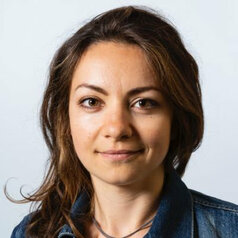
Oleksandra Ivashchenko
Medical Physicist, Netherlands Cancer Institute
I am a medical physicist with a broad background in medical image analysis and molecular imaging, currently responsible for radiation safety and personalized dosimetry in radionuclide therapy at the nuclear medicine department of the University Medical Center Groningen. In addition to my work, I am one of the main coordinators of a volunteering initiative #ScienceForUkraine.
Less ![]()

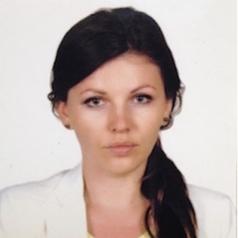
Oleksandra Ozcan
Lecturer in International Business, University of Portsmouth
I am a lecturer in International Business at the School of Languages and Applied Linguistics at the University of Portsmouth and a PhD student at Swansea University. I hold a BA and LLM degrees in International Business Law and MSc in International Business Management.
My research interests are within the field of Strategic Management and Innovation Management, specifically protection of trade secrecy and other IP rights. Throughout my professional career, I have had various work experience as a legal associate working for a trade company and compliance specialist working for a large bank.
As a lecturer now, I deliver business and law-related content on different modules and supervise postgraduate
dissertation projects.
Less ![]()

Olena Vasylets
Profesora asociada, Facultad de Filología y Comunicación, Universitat de Barcelona
Olena Vasylets es Profesora Asociada en la Universitat de Barcelona. El foco prinicipal de su investigación son los aspectos cognitivos en adquisición de segundas lenguas. Su trayectoria investigadora incluye participación continuada en proyectos de investigación financiados en convocatorias competitivas, publicaciones científicas, participación en congresos internacionales y organización de encuentros científicos. Sus publicaciones han visto la luz en varias obras colectivas publicadas por editoriales internacionales (Cambridge University Press, John Benjamins, Routledge) y en revistas de prestigio, incluidas Journal of Second Language Writing (Q1/índice de impacto: 6.1), Annual Review of Applied Linguistics (Q1/índice de impacto: 4.3), Language Learning (cuartil/índice de impacto: 5.2), Studies in Second Language Learning and Teaching (Q1/índice de impacto: 1.9), Studies in Second Language Acquistion (Q1/índice de impacto 5.4).
Less ![]()
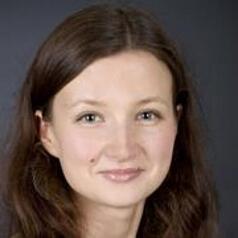
Olga Anikeeva
Research Fellow, School of Public Health, University of Adelaide
Dr Olga Anikeeva is a Research Fellow in the Environment and Health Research Group within the School of Public Health. She has a research and teaching background in epidemiology and public health, with experience in both quantitative and qualitative research methods. Her research interests include the impacts of extreme heat and climate change on health and wellbeing, particularly among vulnerable populations, such as outdoor workers, culturally and linguistically diverse communities and older individuals.
Less ![]()
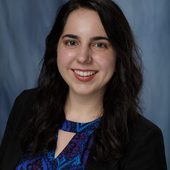
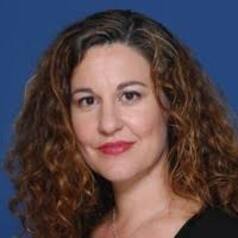
Olga Epitropaki
Professor of Management, Durham Business School, Durham University
Prior to joining Durham University Business School, Olga was Professor of Organizational Behavior at ALBA Graduate Business School at the American College in Greece where she held the "Stavros Costopoulos" Chair in Human Resource Management and Development. She previously worked at Aston University and the Institute of Work Psychology at Sheffield University.
Her research has been published in top refereed journals, such as the Academy of Management Annals, Journal of Applied Psychology, Personnel Psychology, Journal of Management, the Leadership Quarterly, the Journal of Organizational Behavior, the Journal of Occupational and Organizational Psychology and the Personality and Social Psychology Bulletin, among others. For her doctoral thesis, she won the 2001 Jepson School Award for Outstanding Dissertations in Leadership Studies, and she was among the six finalists for the 2000 Newman Best Dissertation Award for the Academy of Management.
She has served as Senior Associate Editor of the Leadership Quarterly, Associate Editor of the British Journal of Management and Associate Editor of Frontiers in Psychology: Organizational Psychology. She is also a member of various Editorial Boards.
She has further worked for many years as a consultant and executive trainer for numerous Greek and multinational companies such as AIG, AstraZeneca, Athens International Airport, Bancpost, Boehringer-Ingelheim, Boeing, EFG-Eurobank, Erste Bank, GlaxoSmithKline, Minerva, Interamerican, ING, National Bank of Greece, National Power Corporation, Nissan, Novo Nordisk, Pepsico, Phillip Morris, Piraeus Bank, Sanofi Aventis, Titan Group, Vodafone, Xerox and others.
Less ![]()
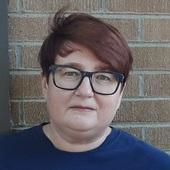
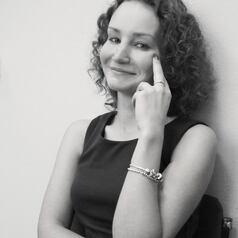
Olga Logunova
Research Associate, King’s Russia Institute, King's College London
I am an experienced researcher specializing in social media analytics, driven by a passion for understanding digital culture, social media communication, and the power of influence marketing.
With a proven track record in both quantitative and qualitative research methodologies, I bring a unique perspective to the table.
My commitment to staying at the forefront of social media trends and emerging technologies ensures that I provide innovative and forward-thinking insights to drive success in today's ever-evolving digital landscape.
Less ![]()
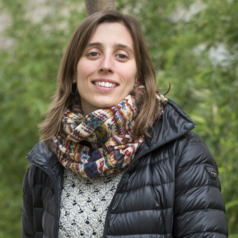
Olga Margalef
Profesora de geomorfología y riesgos geológicos, Universitat de Barcelona
Soy licenciada en Geologia y doctora en ciencias de la Tierra. Mi investigación se ha centrado en (1) reconstrucciones paleoambientales y paleoclimáticas a partir de registros lacustres y de turberas usando indicadores biológicos y geoquímicos y (2) el estudio del ciclo de nutrientes en el suelo en el contexto de cambio global. Actualmente trabajo para comprender los efectos de la desaparición del permafrost sobre la geomorfología, hidrología y quimismo de los suelos árticos y subárticos. Tengo experiencia como docenten en el campo de geomorfología y riesgos geológicos. También dedico parte de mi tiempo a la divulgación científica y activismo ambiental. Creo que la comunidad científica tiene un papel muy importante para acercar la ciencia a la sociedad y contribuir en la lucha contra la emergencia climática
Less ![]()
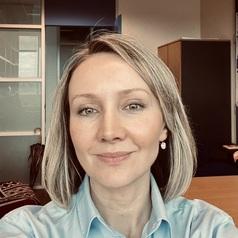
Olga Maxwell
Senior Lecturer, School of Languages and Linguistics, The University of Melbourne
Olga Maxwell is a Senior Lecturer in ESL and Applied Linguistics in the School of Languages and Linguistics. She works on bi-/multilingualism, intonation modelling, acoustic phonetics, English as second language, varieties of English in multilingual societies, prosodic variation, language contact, and language attitudes.
Less ![]()
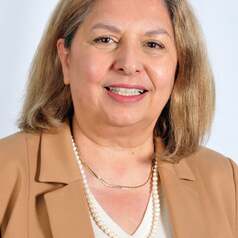
Olga Perovic
Principal Pathologist, National Institute for Communicable Diseases
A Prof/Dr Olga Perovic is a Principal Pathologist at the Centre for Healthcare-Associated
Infections, Antimicrobial Resistance and Mycoses at National Institute for Communicable
Diseases, a division of the NHLS. She is medical doctor with clinical microbiology speciality and
is affiliated with Department of Clinical Microbiology and Infectious Diseases at WITS. Her
responsibilities include Antimicrobial Resistance Reference Laboratory, AMR surveillance,
outbreak investigation, teaching and training. Professor Perovic leads Antimicrobial Resistance
(AMR) programs in South Africa. Prof Perovic is a principal investigator of numerous projects
and she is involved in teaching and training of undergraduate, postgraduate and other related
learners. She experiences a vast ranges of involvements in AMR field, from the basic
antimicrobial susceptibility testing (AST) to the whole genome sequencing; from the bed site
microbiology to the hospital antimicrobial stewardship programs; from infection control
programs at hospitals to the national policy development; from the routine real time to the
national AMR surveillance programs. Perovic is a chair of National Advisory Committee (NAC)
for Antimicrobial Susceptibility at South African Society of Clinical Microbiology (SASCM).
She is an expert in laboratory quality system and responsible for External Quality Assessment
programs in bacteriology and antimicrobial susceptibility testing.
Less ![]()
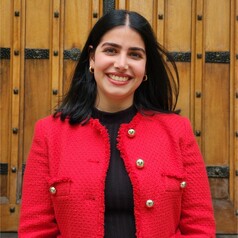
Olga C. Pandos
PhD Candidate in Technology, Medical Law and Ethics, University of Adelaide
I graduated with a double degree in Laws (with First Class Honours) and Science (with majors in Biochemistry and Genetics) from the University of Adelaide. In 2020, I was admitted as a Barrister and Solicitor in the Supreme Court of South Australia.
I am currently studying a PhD in Law – Technology, Medical Law and Ethics, at the Adelaide Law School. I am able to rely upon my technical expertise in science, to enhance the quality and analysis of my research. My unique skillset, both in law, law reform and science, enables me to critically analyse complex areas of law.
I have established myself as a young scholar and competent writer. I am able to convey complex scientific concepts and ideas to a broad audience. My research scholarship, output, impact and publications reflect my expertise. I have also been involved in a number of Government projects for the South Australian Law Reform Institute and the Royal Commission into Aged Care Quality and Safety.
My research expertise extends beyond technology law to medical law and ethics, notably decision-making capacity and consent. I have also established strong connections with South Australian Aboriginal communities, leading consultation for law reform and other projects.
Less ![]()
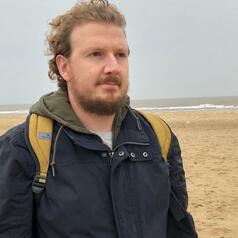
Oli Buckley
Professor of Cyber Security, University of East Anglia
Oli Buckley is a Professor of Cyber Security at the University of East Anglia, where he leads the Cyber Security, Privacy and Trust Lab.
His research focuses on the human aspects of cyber security, behavioural biometrics, insider threat, and the impacts of new technologies on society. His recent projects include user identification and behavioural biometrics with keystroke dynamics, social justice in algorithmic decision making and the use of chatbots to improve trust and sensitive disclosures.
Prior to joining UEA Oli worked as a Lecturer in the Information Operations group at Cranfield University, a Researcher at the University of Oxford Cybersecurity Centre and as a software engineer in industry.
Key Research Interests and Expertise
Current research interests include cyber security, behavioural biometrics, digital identity, privacy, trust, data leakage, insider threat detection, and the application of machine learning and visualisation within cyber security. Oli has recently developed research on the gamification of cyber security concepts and the impacts of rapidly evolving AI technologies on security and privacy.
Less ![]()
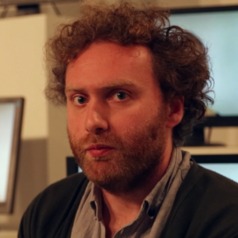
Oliver Bown
Postdoctoral fellow, UNSW Sydney
Oliver Bown is a researcher and maker working with creative technologies. He comes from a highly diverse academic background spanning social anthropology, evolutionary and adaptive systems, music informatics and interaction design, with a parallel career in electronic music and digital art spanning over 15 years. He is interested in how artists, designers and musicians can use advanced computing technologies to produce complex creative works. His current active research areas include media multiplicities, musical metacreation, the theories and methodologies of computational creativity, new interfaces for musical expression, and multi-agent models of social creativity. He is a senior lecturer at the Faculty of Art and Design, University of New South Wales.
Less ![]()
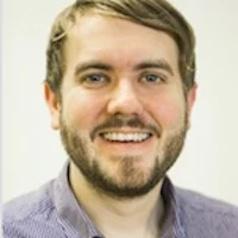
Oliver Castell
Senior Lecturer at the School of Pharmacy and Pharmaceutical Sciences, Cardiff University
I was appointed as a Cardiff University SBP Research Fellow and Lecturer in September 2013. A Pharmacist by training, I gained my PhD (Cardiff University) in multiphase microfluidics, exploiting the unique characteristics of flow on the microscale for high-efficiency chemical separations, work that earned nomination for the Desty Memorial Award for Innovation In Separation Science.
I then went on to work on a Technology Strategy Board-funded project providing micro- and nano-technology solutions to challenges faced in the scientific industry, before moving to the lab of Mark Wallace at Oxford University for postdoctoral research in the development of high-throughput screening platforms for the optical quantification of membrane protein function.
At Oxford I was also able to pursue my interest in more fundamental science and biophysics with single-molecule studies of membrane proteins in droplet interface bilayers (DIBs) - collaborative work that I still maintain. Working between Oxford University and KTH Stockholm I then undertook research as part of £5M EPSRC funded (Curvature Asymmetry and Patterning Integrated Through All Length Scales) research project, a large-scale, cross-institute, multidisciplinary collaboration led by Imperial College London, working in the field of molecular membrane engineering. Now at Cardiff, I continue to involve in the CAPITALS consortium.
I also have a keen interest in science engagement through the arts, performing interactive science-themed music at Einstein's Garden at Green Man Festival 2013 and having scientific photography of my research featured in the National Museum of Wales Research Images Exhibition.
Professional memberships
I am an affiliate member of EPSRC funded research project, a large-scale, multidisciplinary collaboration between leading UK universities working in the field of molecular membrane engineering.
Less ![]()
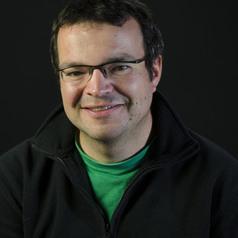
Oliver Davis1
Senior lecturer, Cardiff University
I'm a Senior Lecturer in Archaeology and Civic Mission at Cardiff University. I'm passionate about the prehistory of Britain, particularly Wales, and working with local communities to tell the stories of this fascinating period
Less ![]()
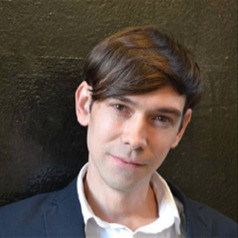
Oliver Gingrich
Programme Lead BA (Hons) Animation, University of Greenwich
Dr Oliver Gingrich is the programme lead for the BA (Hons) Animation at the School of Design, University of Greenwich, a media arts practitioner and researcher. With an Engineering Doctorate in Digital Media, and 15 years of professional practice in the Creative Industries as Creative Director and Art Director, Olive's practice centres around holographic projection, real-time animation and participatory art: As holder of an AHRC-research grant for participatory media arts and its effect on social connectedness and public health, Dr. Oliver Gingrich is exploring intersection between co-creation practices, art and wellbeing. As Director at Art in Flux, Olive supports underrepresented artist groups within the media arts. At the University of Greenwich, Olive's role is within teaching as senior lecturer across all three cohorts, research and creative practice. Olive Gingrich is academic conduct officer and forms part of the ECR research network.
Less ![]()
- Market Data





















